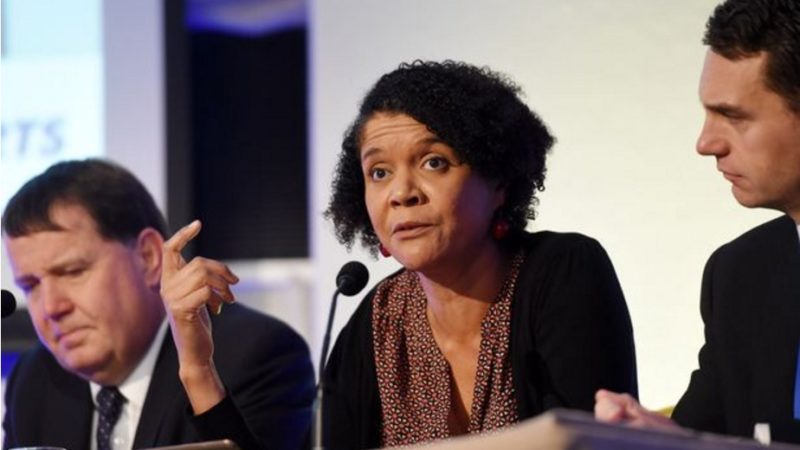
It is now a year since Labour launched our ‘Diversity Charter Challenge’ to improve representation of women and minorities in key sectors of the UK economy. A Labour government will challenge each sector to come together to write its own diversity charter covering gender, ethnicity, sexuality, disability and class. This follows the model of the Women in Finance Charter, developed following a review by CEO of Virgin Money Jayne Anne Gadhia, which now has over 330 signatories. Starting with the establishment of charters for the tech sector and creative industries, the design of the charters will be industry-led, and the policy will be spearheaded by government-appointed ‘diversity champions’.
Our charters would not just be symbolic. As Dawn Butler set out last year, Labour would require employers to take action on gender inequality or face further auditing and fines. We would tie diversity targets to salary and rewards, making it a fundamental part of corporate performance, embedded into practice in every sector.
After almost a decade of Tory government, our Charter Challenge is more necessary than ever. Tory austerity has had a disproportionate impact on women, and on BAME households. Throughout the entire economy, not only do women earn and own less, but they have a greater responsibility for unpaid and domestic work. Cuts to public services have meant that women are more likely to be shouldering this burden through unpaid work. BAME women are unemployed in greater numbers than their white counterparts, even when qualifications are accounted for, and are twice as likely to be living in poverty.
Women and minorities are overrepresented when it comes to unemployment but underrepresented at the highest levels of the economy. As an engineer myself, I know how unbalanced that profession is – only 11% of engineers in the UK are women, the lowest proportion in Europe. In the tech sector, 8.5% of senior leaders are from ethnic minority backgrounds and just 5% are women, while more than 40% of senior leadership teams have no women represented at all.
In the UK, 14% of the population is BME, but a review published last year found that only 2% of the directors of top firms are ethnic minority UK citizens. The McGregor-Smith review into race at work found that over half of BAME employees believe that they will have to leave their current organisation to progress in their career, in contrast with 38% of their white counterparts. At the same time, only 32% of managers report that they have a performance objective to promote equality at work – alarmingly, down from 41% in 2015.
This is an unacceptable waste of talent. These figures do more than represent an injustice for those who miss out on these opportunities; they represent a systematic failing of our economy. Diversity is an economic imperative, because without utilising the talents of the entire population, we cannot build a more prosperous, productive and healthy economy.
Since we launched the Charter, we have seen key industry bodies take up the challenge. The Tech Talent Charter, created by several organisations across tech, recruitment and social enterprise to boost diversity in the tech sector, now has almost 300 companies on board. The Association of Accounting Technicians (AAT) became the first professional accounting body to sign, joining organisations such as Deloitte, BBC, and Tech UK. The TTC is now creating a playbook of best practice, which will allow companies to learn from each other.
The Women in Aviation and Aerospace Charter led by Airbus Senior Vice President Katherine Bennett already has over 80 signatories, showing a willingness for much-needed change across a male-dominated industry.
There is appetite for further change. A poll commissioned by AAT found that over two thirds of MPs believe more must be done to address the gender and ethnicity pay gap. Why, then, doesn’t the government support Labour’s initiative? In February, I asked the women and equalities minister to commit to making diversity charters a requirement for all sectors, but she avoided my question. It is the government’s duty to ensure diversity of participation throughout every level of every sector of the economy.
Our current economic model sees women and minorities dominate low-paid, low-productivity jobs, while higher-paid and higher-skilled sectors are predominately male. By failing to address this, the government is impeding our economic growth and allowing an intolerable squandering of potential.
Diversity is embedded throughout Labour’s industrial strategy because we know it must run through our entire economy. Our National Education Service would ensure lifelong access to skills and training, and encourage the participation of underrepresented groups in STEM subjects. Our Ministry for Labour would enhance and safeguard the rights of workers, strengthening the protections for those in low-paid sectors – disproportionately women and minorities.
Our democratising innovation mission will raise our R&D spend to 3% of GDP and boost productivity throughout the entire economy, creating the greatest proportion of high-skilled jobs in the OECD. And our Diversity Charter Challenge would ensure these jobs are accessible for everyone, and that our economy is truly for the many, not the few.




More from LabourList
‘The hope that kills you’: Reflections from the final day in Gorton and Denton
MPs, union leaders and organisations react to ‘bruising’ Gorton and Denton result
A gory night for Labour